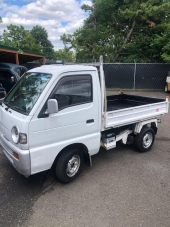




Permies is awesome!!!
 2
2




John Daley Bendigo, Australia The Enemy of progress is the hope of a perfect plan
Benefits of rainfall collection https://permies.com/t/88043/benefits-rainfall-collection
GOOD DEBT/ BAD DEBT https://permies.com/t/179218/mortgages-good-debt-bad-debt
 3
3




 1
1




John Daley Bendigo, Australia The Enemy of progress is the hope of a perfect plan
Benefits of rainfall collection https://permies.com/t/88043/benefits-rainfall-collection
GOOD DEBT/ BAD DEBT https://permies.com/t/179218/mortgages-good-debt-bad-debt
 1
1




 1
1




'Theoretically this level of creeping Orwellian dynamics should ramp up our awareness, but what happens instead is that each alert becomes less and less effective because we're incredibly stupid.' - Jerry Holkins








 2
2




John Daley Bendigo, Australia The Enemy of progress is the hope of a perfect plan
Benefits of rainfall collection https://permies.com/t/88043/benefits-rainfall-collection
GOOD DEBT/ BAD DEBT https://permies.com/t/179218/mortgages-good-debt-bad-debt




I've got to remember this, it takes some pressure off!It's all just "best guess" right now. Because it takes time and experience to know your style and what tools and equipment you will find comfortable, necessary. So spending less at this time, just for what you know you won't be able to get by w/out, is probably good policy
Tipping trailers
I built mine with a hinge point just a bit forward of 1/2 way along the trailer bed.
This meant it always returned to the 'down ' position, and the effort to tip it is greatly reduced.
I have a snap pin for holding it down.
The lifting mechanism consists of a pole rising above the front of the trailer about 4 feet. It has a 4 inch pulley at the top.
The winding mechanism is the same used to pull boats onto trailers, they are geared very low.
It is mounted to a horizontal bracket welded to the upright and pointing towards the tow hitch.
It is just far enough back to give clearance for your hand when winding the winch.
Another 4 inch pulley between the winch and the base of the pole near that horizontal bracket helps with the cable being smooth in its operation.
To lift the snap pin is released, the winch operated until the soil starts to move and a locking strut then swings under the trailer bed to hold it up.
Permies is awesome!!!
 2
2




![Filename: customtippertrailer.jpg
Description: [Thumbnail for customtippertrailer.jpg]](/t/139874/a/106873/customtippertrailer.jpg)
John Daley Bendigo, Australia The Enemy of progress is the hope of a perfect plan
Benefits of rainfall collection https://permies.com/t/88043/benefits-rainfall-collection
GOOD DEBT/ BAD DEBT https://permies.com/t/179218/mortgages-good-debt-bad-debt




John Daley Bendigo, Australia The Enemy of progress is the hope of a perfect plan
Benefits of rainfall collection https://permies.com/t/88043/benefits-rainfall-collection
GOOD DEBT/ BAD DEBT https://permies.com/t/179218/mortgages-good-debt-bad-debt








John Daley Bendigo, Australia The Enemy of progress is the hope of a perfect plan
Benefits of rainfall collection https://permies.com/t/88043/benefits-rainfall-collection
GOOD DEBT/ BAD DEBT https://permies.com/t/179218/mortgages-good-debt-bad-debt




Permies is awesome!!!
 1
1




 2
2








John Daley Bendigo, Australia The Enemy of progress is the hope of a perfect plan
Benefits of rainfall collection https://permies.com/t/88043/benefits-rainfall-collection
GOOD DEBT/ BAD DEBT https://permies.com/t/179218/mortgages-good-debt-bad-debt
 1
1




Standing on the shoulders of giants. Giants with dirt under their nails
 2
2





|
the force is strong in this tiny ad
Our PIE page has been updated, anybody wanna test?
https://permies.com/t/369340/PIE-page-updated-wanna-test
|




